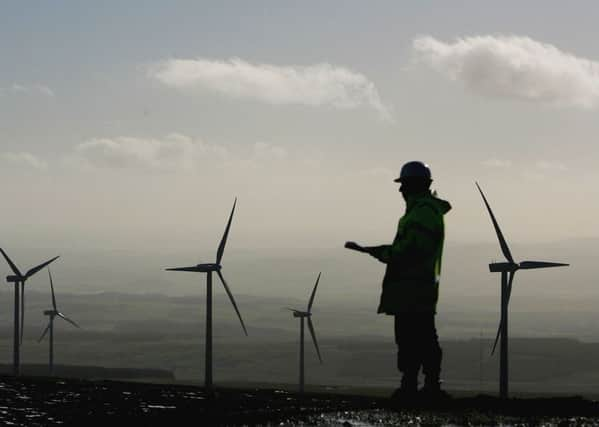Scotland ideally placed for new Industrial Revolution – leader comment


In the 18th century, Scotland and the UK got a flying headstart on the rest of the world because the Industrial Revolution was born within these shores, thanks to the ingenuity of a few brilliant inventors, large and easily accessible coal fields, and the endeavours of a nation.
However, the world is turning and a new industrial age is dawning. It is one based on wonders of modern science such as artificial intelligence, genetics, nanotechnology, quantum computing, the ‘internet of things’ and a whole range of new technologies.
Advertisement
Hide AdAdvertisement
Hide AdBut one of the most central and fundamental aspects of this rapidly arriving future is the switch to a zero-carbon economy, driven by the need to tackle global warming.
Today the UK Climate Change Committee published its advice on carbon emissions for the UK and Scottish governments, recommending that the latter could set a new target of net-zero greenhouse gas emissions by 2045.
This would “put Scotland at the forefront of global efforts to meet the ambition of the Paris Agreement, consistent with limiting the rise in average global temperatures to 1.5C above pre-industrial levels”, the committee said.
The Scottish Government has already responded, with Climate Change Secretary Roseanna Cunningham saying the current Climate Change Bill would be amended to include the new targets. “We have already halved greenhouse gas emissions from Scotland while growing the economy, so we know we can do it. I am committed to meeting the most ambitious targets possible ... while continuing to build an inclusive and fair economy,” she said.
All this change can seem scary. And it should, because there are real dangers from such upheaval. Just as there were people who lost out in the 18th century, so could there be today. We ensure we do not get ahead of ourselves. If Scotland’s economy gets into trouble, our ability to change it will be diminished.
But, ultimately, being at the forefront of this new Industrial Revolution could be as beneficial as it was three centuries ago. The vast amounts of wind, wave and tidal energy available in Scotland may turn out to be even more valuable than our coal fields once were.
That our situation gives us the chance to lead the clean-up of a world we played a major role in covering in soot – while also improving our economy – is fortuitous indeed. We should take it with both hands.